2025. 02. 20.
When a person moves to another country for work, many questions arise: What will the new environment be like? How will they manage daily life? Is the change worth it?
For Gyula Oroszlán, the answer is clear: yes! He has been working in Mexico for two years, and this period has not only helped his professional development but also brought him many new experiences. How has his thinking changed? How has his career progressed? And what experiences would he share with those considering a similar step?
Read the full interview and learn more about Gyula's story!
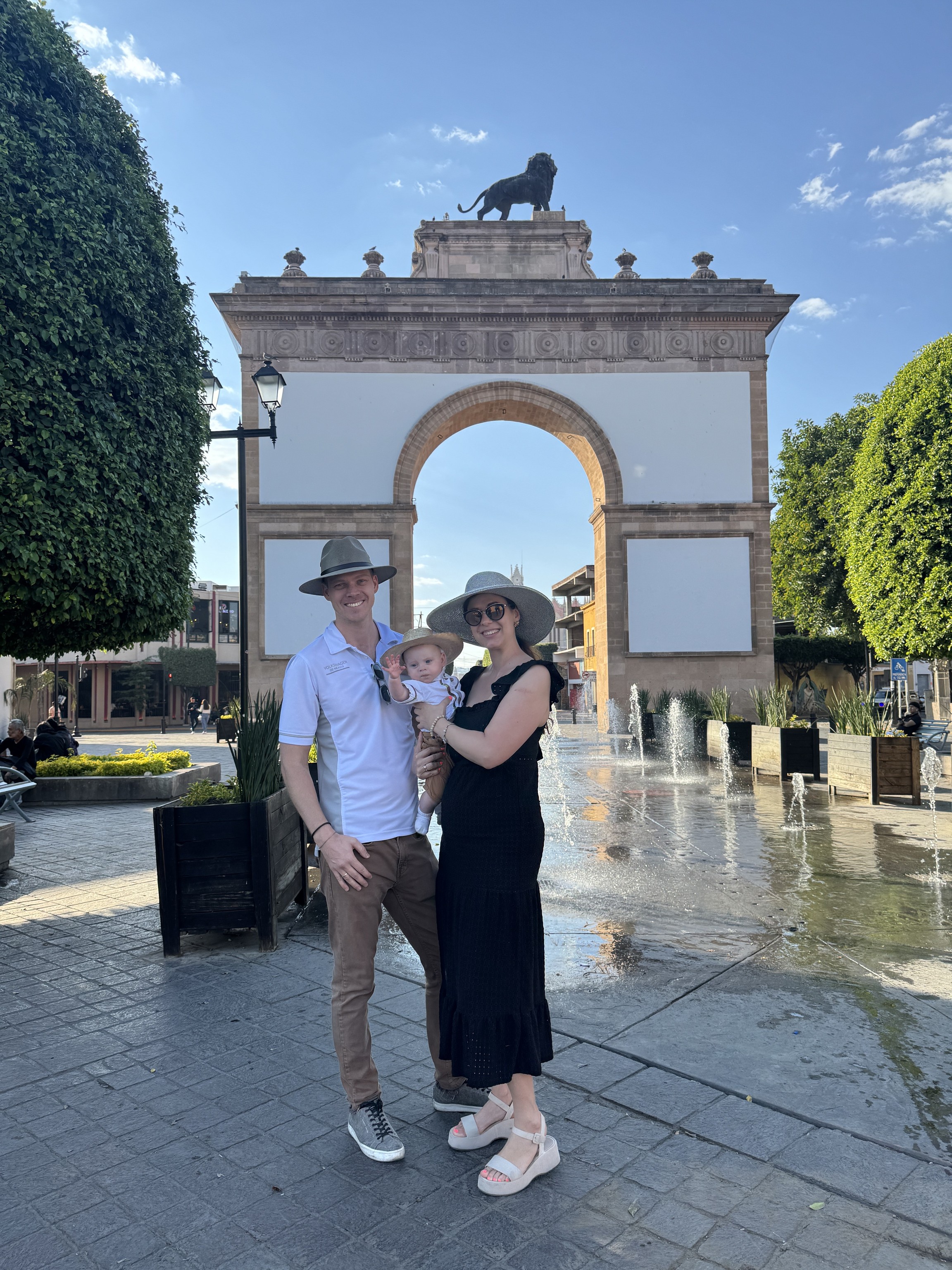
Gyula Oroszlán:
It is difficult to highlight one thing. I am proud, for example, to have worked on the machining line in the world's largest powertrain factory, where we manufactured the crankcase for one of the world's most produced engines. Although many of the VW Group's vehicle engines built into numerous vehicle types are produced at several sites, Győr is the main producer of the product filling the role of “Typführer” (type leader). As we introduced all the changes to the engine here and then shared the experience with the other production sites, I was able to take part in a number of complex and exciting projects. As a high priority product, the production line has benefited from the implementation of comprehensive maintenance activities, the installation of new equipment and machines and the introduction of new methods. In every case the successful implementation of all of these tasks required considerable preparation on the part of all participants. Owing to the volume itself, a very disciplined, responsible, well-structured operation was and still is required on a day-to-day basis to ensure continuous production and quality.
I'd also like to point out that being the technical deputy of my manager at the time, I had several opportunities to spread my wings in leadership roles. To this day, I am pleased to look back on the 4 months I spent on the line, which was a very rewarding and challenging opportunity that contributed greatly to my development.
I am also proud that we accomplished the 22-hour flight to Mexico with our 3-month-old son. On a serious note, I am happy to be doing this extraordinary mission with my family. Such a change is a huge challenge in itself, but when you add having children to the mix, it becomes an adventure in the most positive sense of the word.
GYO: Looking for new challenges - and solving them as a team. I like to explore and analyse challenging tasks in a team and then develop the best possible, long-term sustainable solutions and processes. Recollecting my previous position, it's also very motivating to know that the engine I helped build reaches numerous customers around the world.
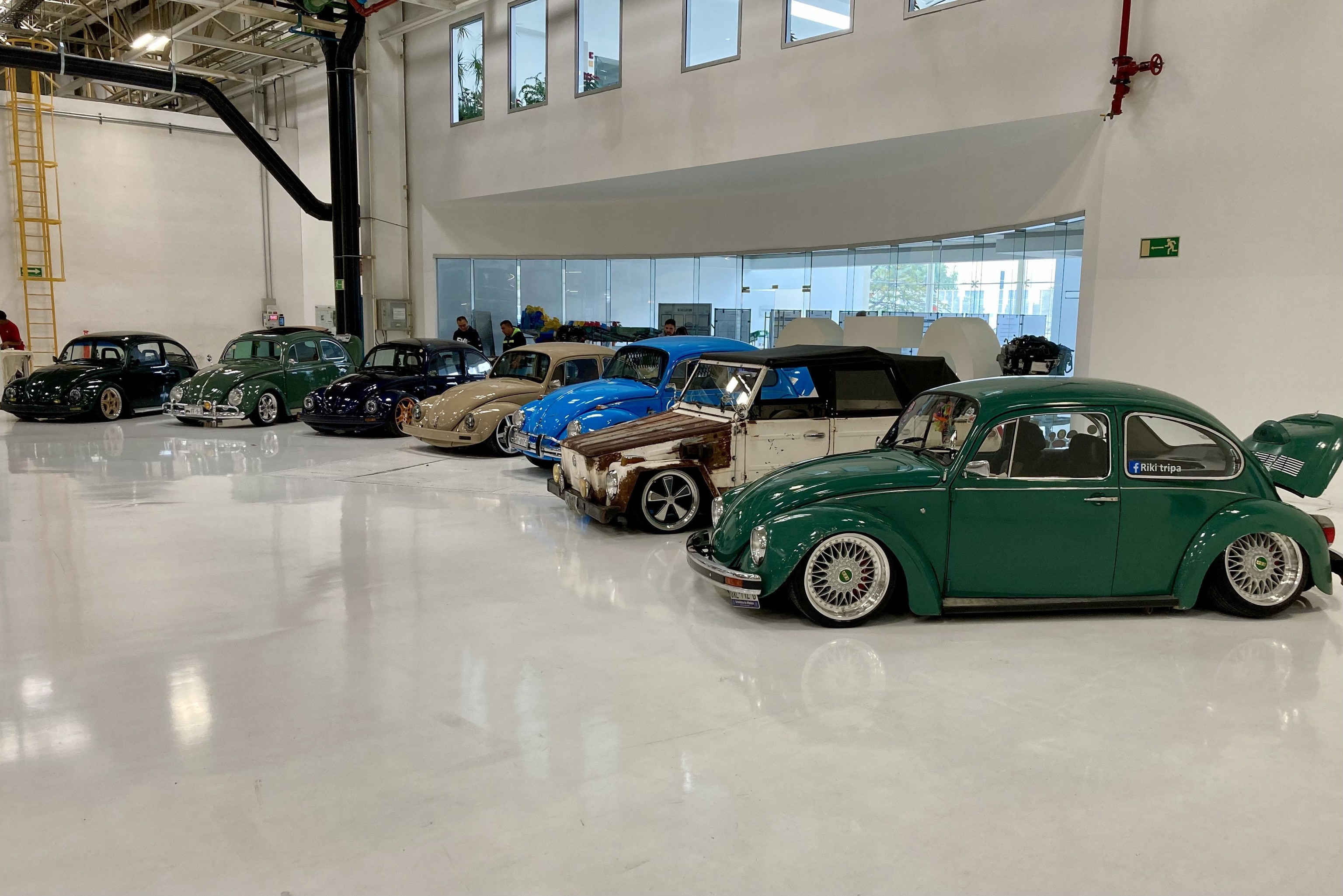
GYO: Although I was mainly attracted to a German path, I was always interested in being posted abroad. The greater the change (location, country, brand, language, job title, etc.), the better.
Mexico is in the spotlight because the EA888 engine is also produced in Silau. We have a close relationship with them, with regular knowledge transfer. And because they wanted local help, my management offered me the opportunity. The change also supported my personal career path and was in the interests of the Group. I discussed all this with my partner, who luckily was very open-minded about it, so of course we came to Mexico together, and to our great joy, our first son was born during the posting.
GYO: I was attracted to a whole new culture. And also the challenge of how I will be able to integrate and grow as a person in a completely unknown environment. It was very exciting to get to know a country with such a fascinating culture. I'm not a polyglot, but I love foreign languages, so the opportunity to learn Spanish on the spot, as well as English and German, was very appealing. I agree that learning a language is the best way of learning about a culture.
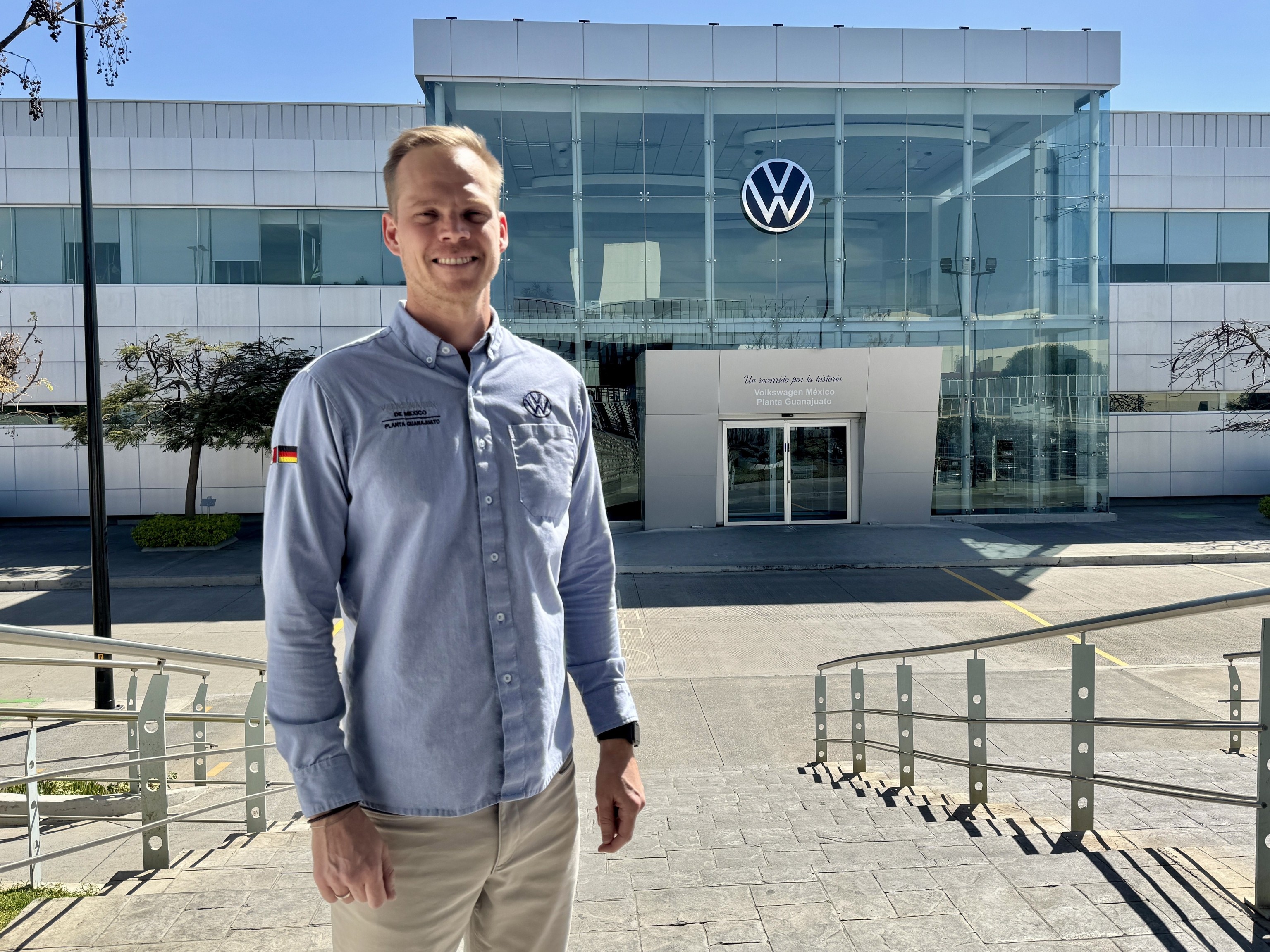 GYO: My job at the Mexican engine plant is production support. This includes implementing processes that have worked well in Győr, dealing with acute cases, introducing long-term measures to deal with these, ensuring the availability of machinery - and of course attaining the right volume and quality. A concrete example is providing support for the integration of the EVO5 type, which is still ongoing.. It is very exciting to work with local Mexican colleagues and posted staff. There were delegates from Germany, Poland, the Czech Republic, India, Brazil, so it's a very colourful team. A real intercultural experience! It is also an excellent opportunity to find common ground and achieve our goals together, despite our different cultural backgrounds.
GYO: My job at the Mexican engine plant is production support. This includes implementing processes that have worked well in Győr, dealing with acute cases, introducing long-term measures to deal with these, ensuring the availability of machinery - and of course attaining the right volume and quality. A concrete example is providing support for the integration of the EVO5 type, which is still ongoing.. It is very exciting to work with local Mexican colleagues and posted staff. There were delegates from Germany, Poland, the Czech Republic, India, Brazil, so it's a very colourful team. A real intercultural experience! It is also an excellent opportunity to find common ground and achieve our goals together, despite our different cultural backgrounds.
GYO: It comes from Mexican culture that they are direct and open, which is one of the reasons why I have developed very good relationships with many of the staff. They value community experiences, both inside and outside the factory. Achieving milestones at work is as important as celebrating birthdays and private successes, or sharing a meal together. Attendance is almost compulsory at these events to gain their trust and to integrate promptly. Additionally, friendships are quickly made over a good Mexican tequila. The posted colleagues are also very cohesive. It's a relatively small team, with at most 15 of us in the entire factory. Everyone knows about everyone else and empathises with one another. There are a total of three Hungarians on secondment from Audi.
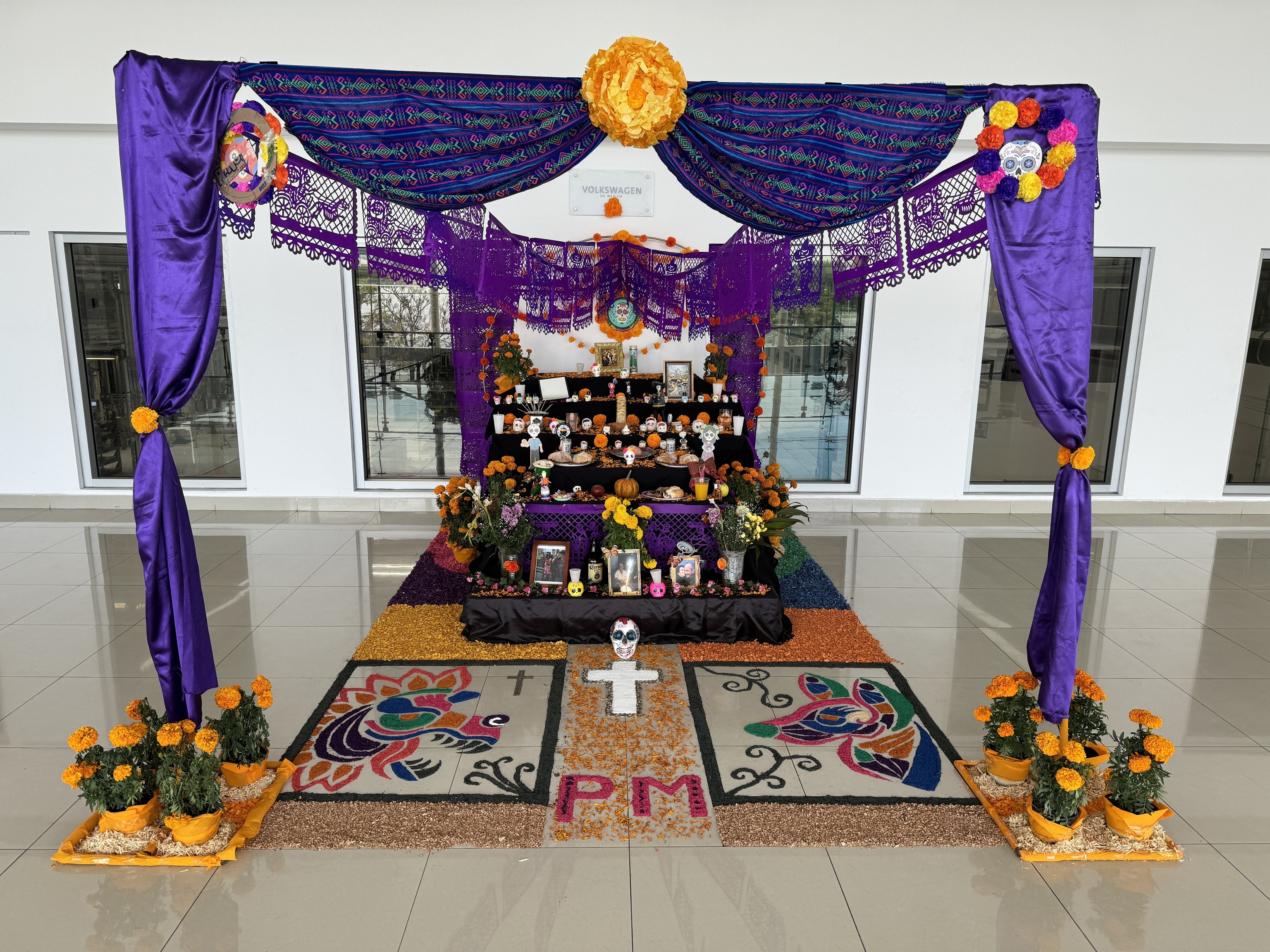
GYO: The organizational structure is characterized by a looser, flatter hierarchy, making it easier to reach higher levels of management. Personal connections are important, so the staff here found it difficult to keep their distance during the Covid, for example. Very often they touch and hug each other, which is not very common among us. It is often easier and faster to ask for information in person than by e-mail or phone. They like to organize themselves into groups and work together. It's also important for them to celebrate small successes, which we might miss in the rush of the day. At the same time, it would be beneficial to have a break and give credit to smaller successes. Mexicans are a very religious nation. Crucifixes can be seen in several places in the factory.
It is very spectacular and touching when on the Day of the Dead, individual business areas build altars to honor their dead. An unusual but very interesting sight in a powertrain factory.
GYO: Be open to new things! Open to new people, a new culture, new processes, a new mentality and the new ways of looking at things. Along with tolerance and patience, there should be a desire to understand why people think or do something differently. You need to be curios and interested in things! And one more thing: you have to step out of your comfort zone! And posting abroad should be seen as a once-in-a-lifetime opportunity to get to know a culture and nation from the inside. Of course, posting overseas also means being a long distance from home, in both space and time. You can't just go home for the weekend. Even a simple phone call home isn’t the same because of the 7-8 hour time difference. It’s also worth mentioning that dealing with the bureaucracy at home is also a complex task. Therefore, resilience (our mental ability to cope with obstacles and difficult life situations) is a quality worth having. What is certain, however, is that the posted person will improve this ability spectacularly.

GYO: It's not every day that you have the chance of getting to know America better. Of course, we visited the most popular tourist attractions in Mexico, which are typically located in the Yucatán Peninsula - such as Tulum, Cancún and Chichen Itza.
But the most memorable would be the pyramids at Kalakmul. From the entrance, we had to drive another 60 kilometres into the jungle to reach the structure, one of the few pyramids that can still be climbed.
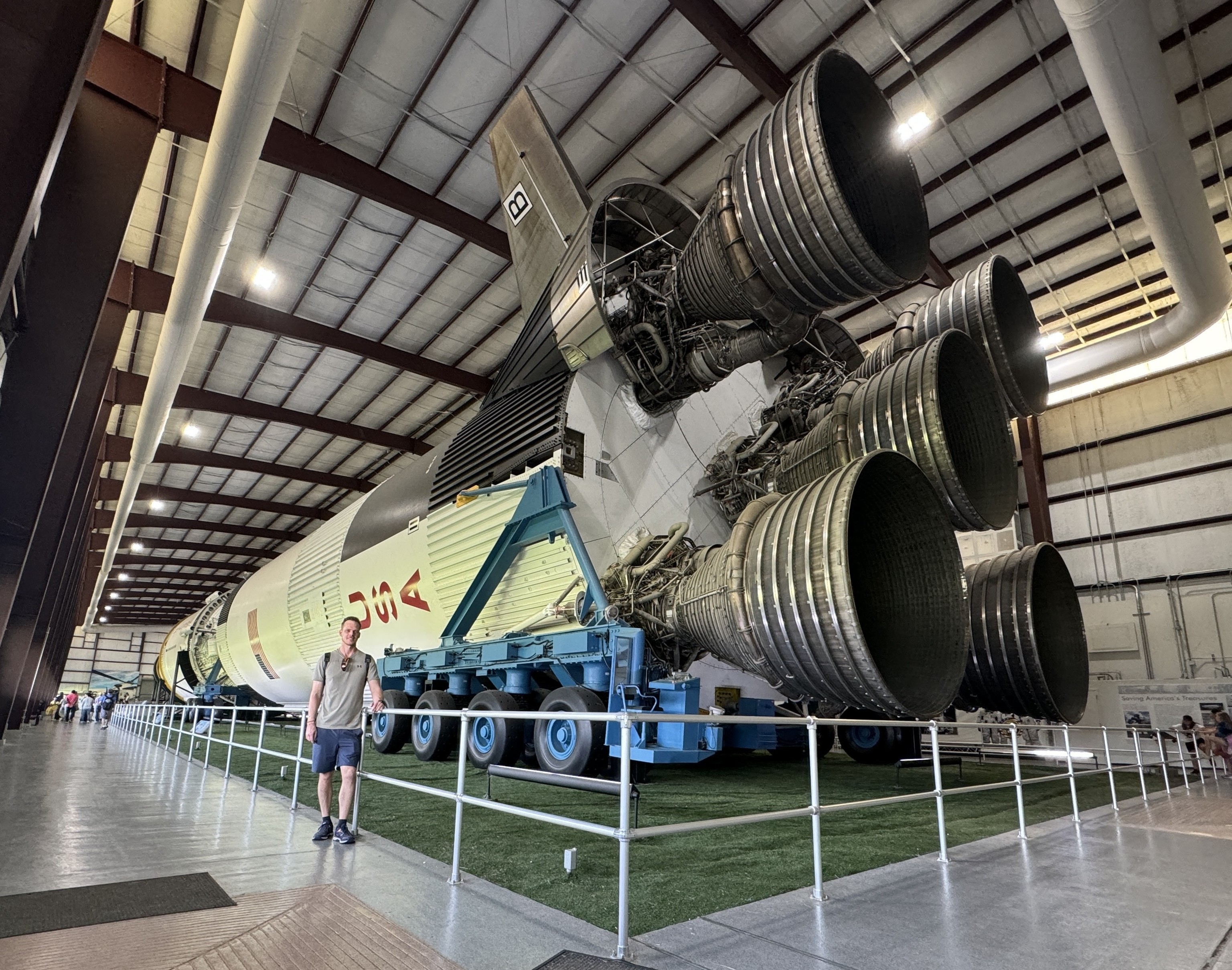
At the same time, we have been to Mexico City, Puebla or Puerto Vallarta, on the Pacific coast. It's an unforgettable opportunity to see parts of Mexico that you wouldn't go to as a tourist, but they are beautiful on the one part, and also a great way of learning about the local culture. We also like to explore Mexican cuisine, which is very exciting, colourful and tasty.
We also visited Guatemala, and I enjoyed every minute of my visit to the NASA headquarters in Houston, USA. I love hiking in high mountains, which is particularly useful here as Mexico has many mountains, several of which are over 5,000 metres. It would be a big milestone for me to reach above such a height... I would like to achieve this.
GYO: Family, friends, Hungarian food. On the work side, the processes we already have in place at home, the highly process-oriented approach and the structured way of working that I'm used to back home.
GYO: I have been back home twice so far. First, because of the birth of my son. The second time was when he was old enough to travel. Then the three of us flew back to Mexico.
GYO: I have no plans for an extension, I would like to continue my leadership development at home. But looking into the distant future, I... Never say never.
If you look beyond the work, there are aspects that make Mexico attractive, such as the lifestyle, the weather, the tourism and the food. But there are critical aspects - such as public safety or transport - that are fundamentally different from what we are used to in Europe. I would not be able to adapt to these on a daily basis.
Address
9027 Győr, Audi Hungária út 1.
Phone
+ 36 96 66 8888
E-mail
You can read our current news on the News page.
If you need further information concerning our press materials, please, contact our colleagues at the Corporate Communication Department.